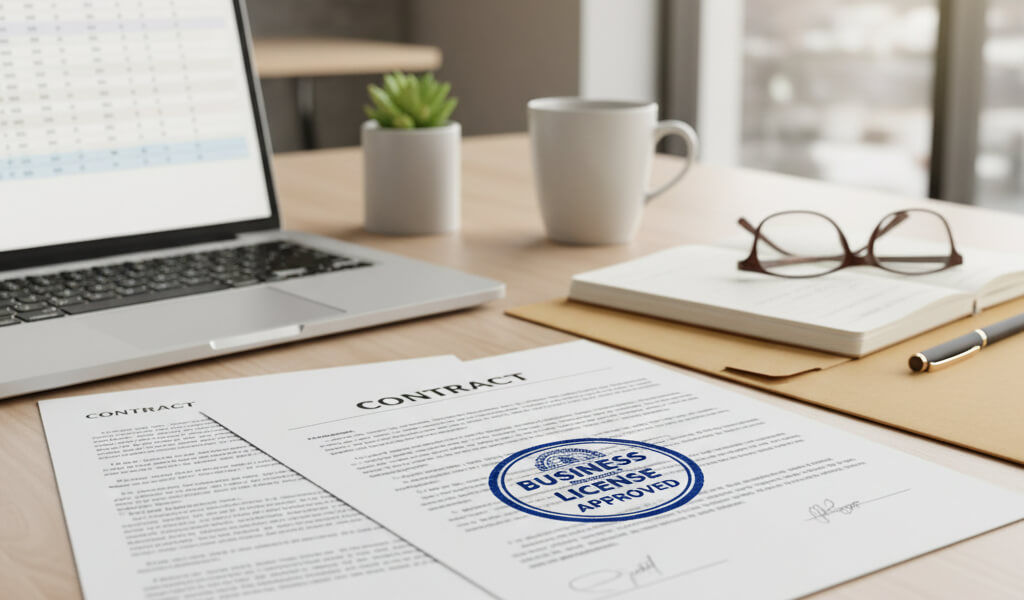September 22, 2025

A business license is an official legal authorization granted by a government agency that permits individuals or companies to operate within a specific jurisdiction, whether locally, at the state level, or federally. It’s an essential legal step for any entrepreneur or business owner to ensure that they comply with the laws and regulations governing business operations in their area. Whether you’re running a home-based consultancy or a large multinational corporation, understanding business licenses and securing the right one for your specific needs is crucial for operating legally and avoiding penalties.
Securing a business license is a foundational step for any legitimate business. It brings a variety of benefits and ensures that your business complies with various local, state, and federal regulations.
For further information on structuring and protecting your business, explore articles like The Legal Steps to Selling Your Small Business and Understanding the Legal Aspects of Raising Capital.
The type of license you need depends on the nature of your business, the jurisdiction in which you operate, and any specific industry regulations. Let’s explore the most common types of business licenses and permits.
This is the most common license for businesses, required by most cities, counties, and states. It authorizes you to conduct business within the jurisdiction.
Professions like law, medicine, accounting, and other regulated industries often require specialized licenses. These licenses ensure that professionals meet the educational and experience qualifications required by the state or federal agencies overseeing that profession.
These are required for businesses that deal with food, healthcare, or other activities where public safety is a concern (e.g., restaurants, childcare centers, medical facilities).
If your business sells products or services that are taxable, you’ll need a sales tax license or permit. This license allows you to collect and remit sales tax on the goods and services you sell.
If you operate from a physical location, such as a storefront or office, you may need a zoning permit that confirms your business activities are allowed in the area you operate.
For help in navigating which licenses apply to your specific business, Meet Our Business Law Team showcases how legal professionals can assist in pinpointing the necessary business licenses.
Securing a business license involves several steps, which can vary depending on your location and business type. Below are the general steps you’ll need to follow to ensure compliance.
To get started, the U.S. Small Business Administration offers a comprehensive Business License Guide to help you understand where to begin.
In most cases, you’ll need to provide various business-related documents during the application process, such as:
Business license fees can range from a small processing fee to several hundred dollars depending on the type of business and location. Once your application is submitted and fees paid, you may have to wait for approval. Some jurisdictions may require an inspection or additional documentation.
Most business licenses require renewal on an annual or biennial basis. You’ll need to submit a renewal form, update any business information, and possibly pay a renewal fee to keep your license valid.
For further guidance on legal documentation and agreements, consider A Guide to Drafting a Business Partnership Agreement.
Operating a business without the required license can have serious legal and financial consequences. These can include:
For more information on avoiding costly legal disputes, check out The Business Law Firm Difference in Corporate Litigation.
A business license is more than just a legal requirement—it’s the foundation for a compliant, trustworthy, and professional business. By securing the proper business licenses, you protect your business from potential legal issues, build credibility, and ensure you're operating in line with the law. Whether you’re just starting or expanding your business, leveraging resources like our expert guides and partnering with legal professionals can help you navigate this critical aspect of business ownership.
Stay up to date with the latest tips, expert insights, product reviews, and step-by-step guides to help you grow, create, and succeed—no matter your industry or passion.